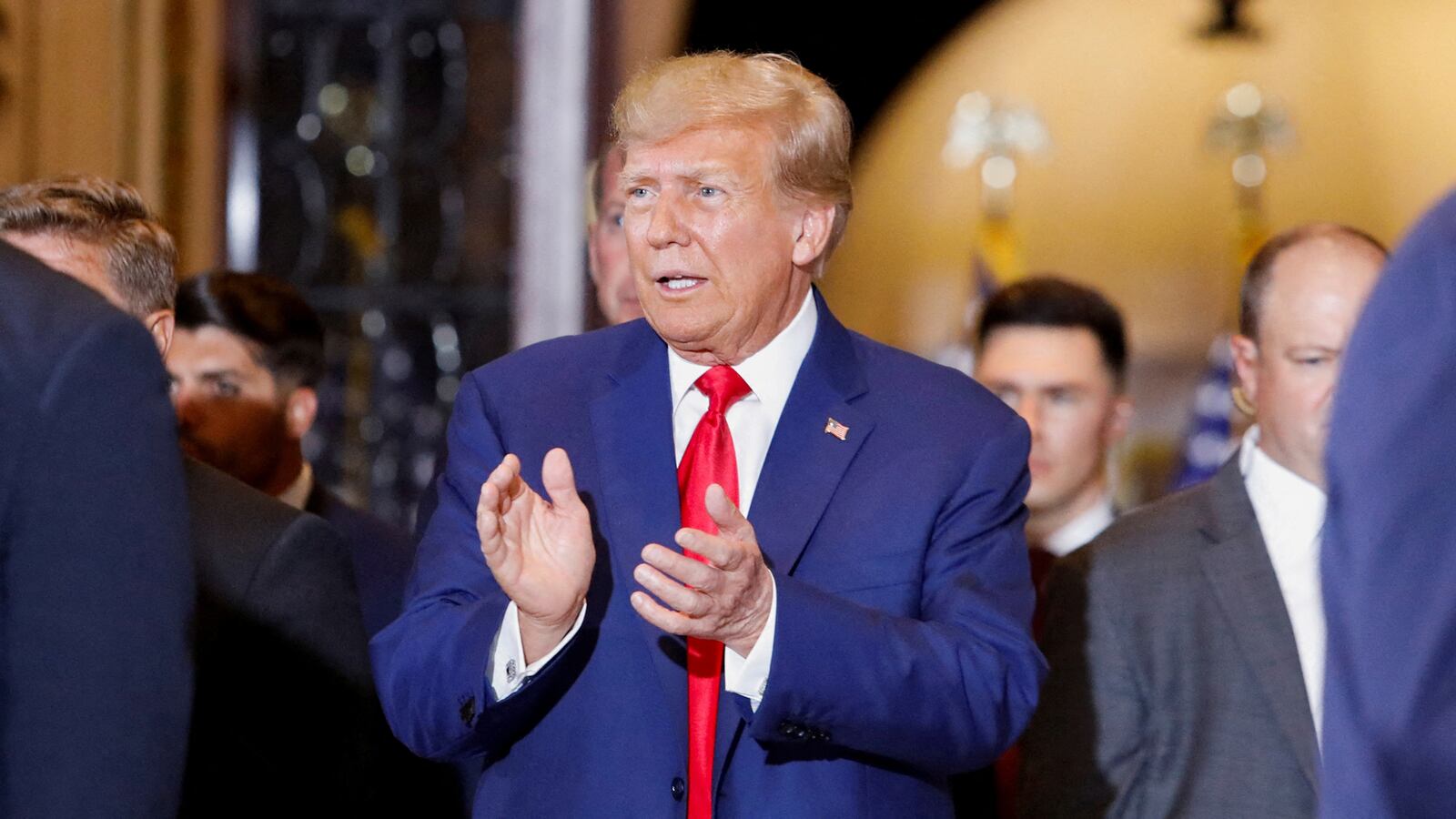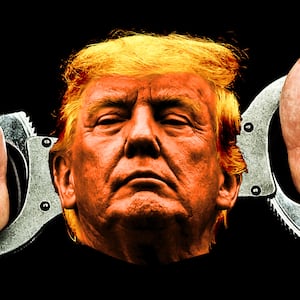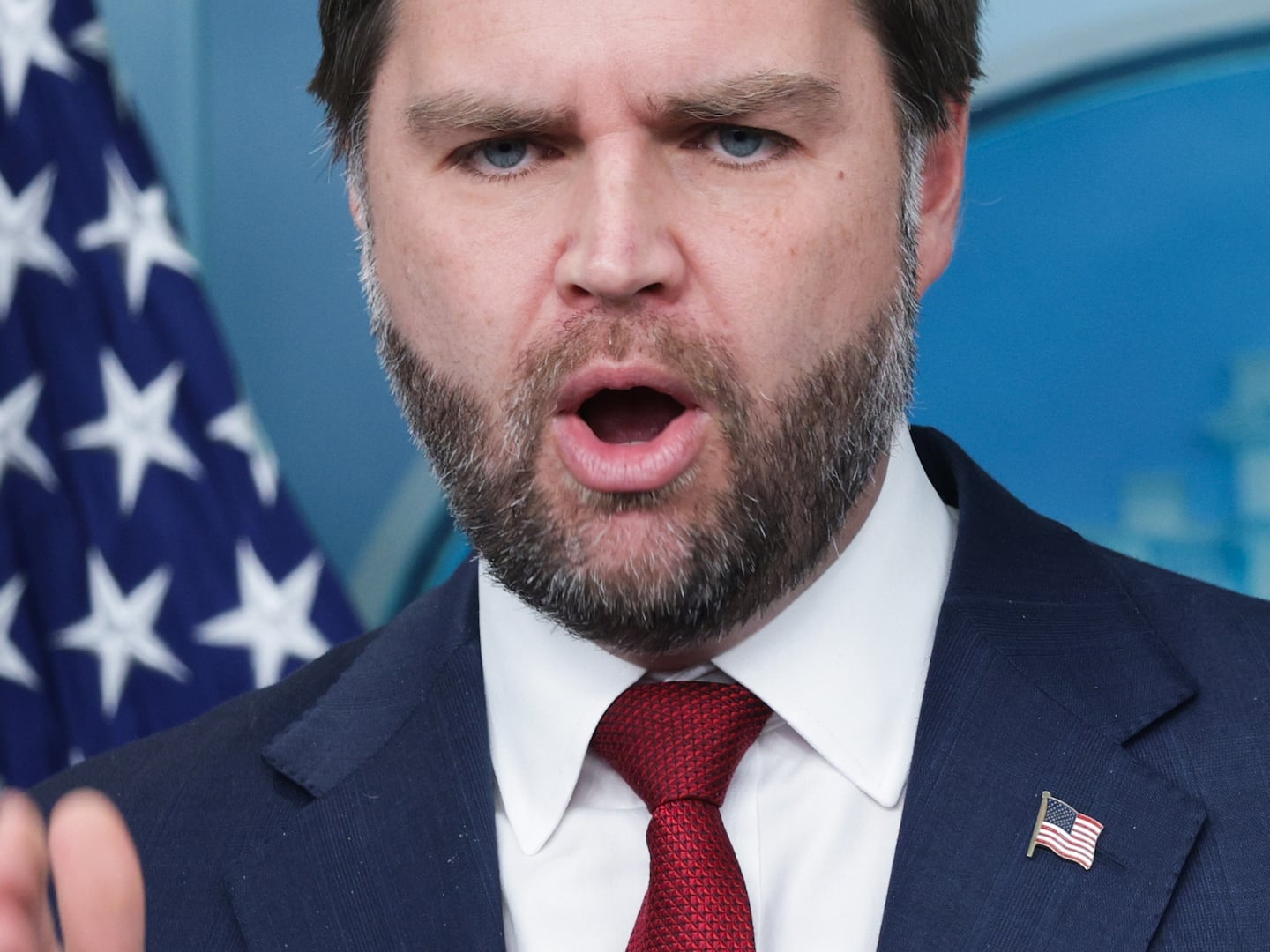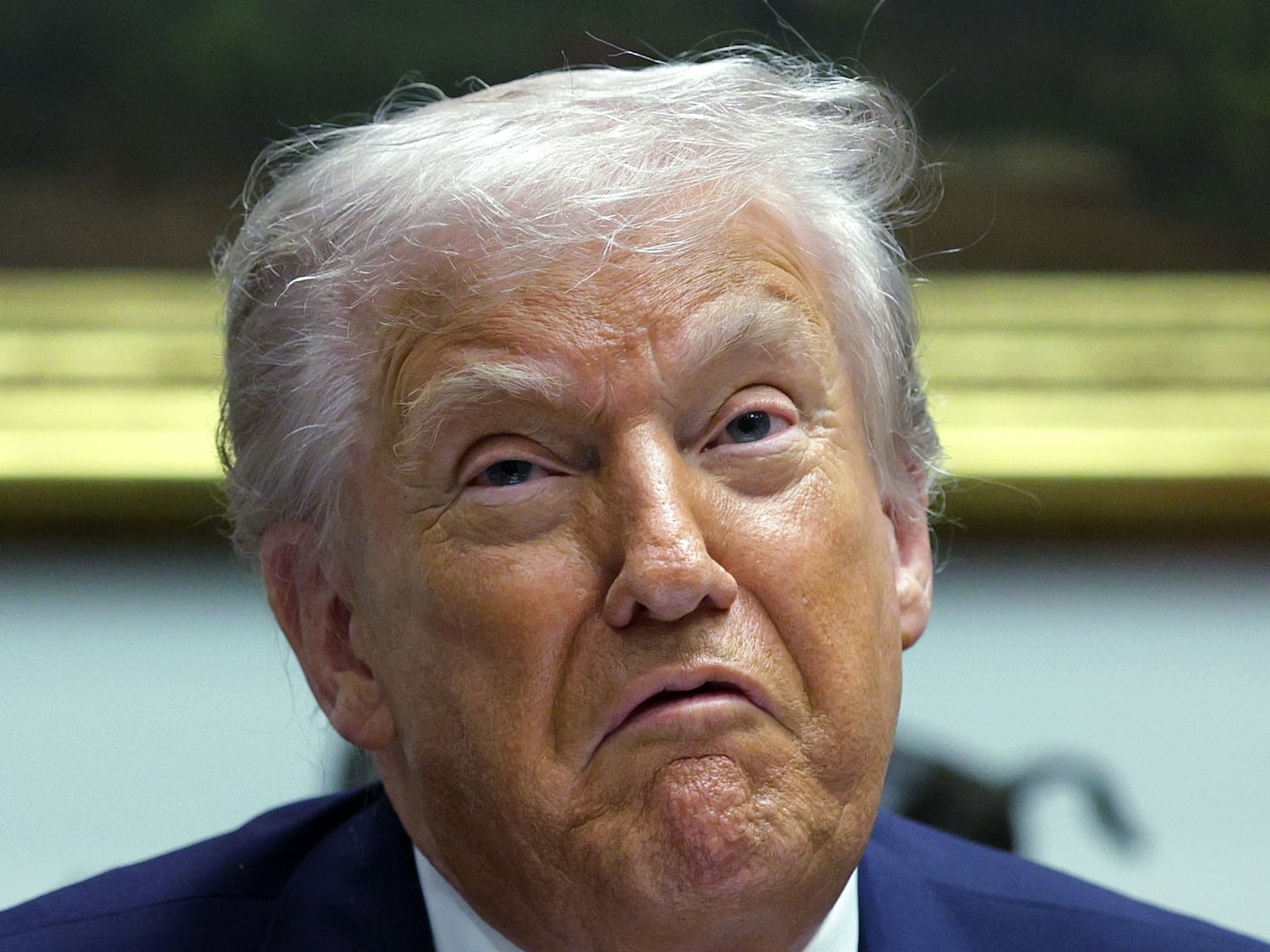Get more news and opinions in the twice-daily Beast Digest newsletter. Don’t miss the next big story, sign up here.
The unprecedented arrest and arraignment of an ex-president has gotten a lot of people talking about whether or not someone charged with—or convicted of—a crime should be allowed to run for president.
In fact, less than four months have passed since Democrats introduced legislation (which never left the House) to prevent Donald Trump from holding federal office again, citing the 14th amendment’s prohibition on office-holders who’ve previously “engaged in insurrection” while serving in office. And that was all before the Manhattan indictment.
While there’s nothing in the Constitution that would prevent Trump from running on the basis of these current criminal charges, some might now be tempted to argue that there should be. After all, people convicted of felonies are currently barred from voting in the vast majority of states. Preventing people with felony convictions from participating in the democratic process as candidates might not seem like much of a leap.
Given the vast harm inflicted by our legal and immigration systems as a direct result of his policies—not to mention his own well-documented weaponization of the legal system—it might seem like a fair or logical step to help ensure nothing like this happens again.
But as a career public defender and staunch advocate for reforming the criminal legal system, I believe it’s important to remind any self-styled “progressives” or Democratic candidates who might find themselves salivating over the prospect of preventing Trump from ever running for office again that this particular remedy would actually be a bad thing for democracy.
The right to decide for themselves what qualities or aspects of a candidate’s bio and experience should or shouldn’t be considered disqualifying is one of the most important rights voters are guaranteed under the Constitution.
Moreover, because our criminal legal system disproportionately disenfranchises, criminalizes, and stigmatizes people of color and poor and vulnerable people, no one with an authentic commitment to making our society fairer and more just should want to bar people who’ve been personally affected by this system from holding public office. Their perspectives and experiences are vital to creating a better system.
There is also the reality that—for the vast majority of people charged with crimes in this country—a jury trial is simply not a feasible option. Our present system for entering a guilty or not-guilty plea is highly coercive. Faced with a choice between pleading guilty and serving a relatively short sentence or taking a case to trial and running the risk of having to serve substantial time in prison, many people are left with no real option but to take a plea.
This brings me to another point that I believe Democrats would do well to consider in this election season and beyond.
Whatever merits an individual criminal case might seem to have, the system overall is deeply flawed. It is irresponsible to celebrate these charges against the former president without acknowledging that.
Can’t get enough from The Daily Beast? Subscribe to the twice-daily Beast Digest newsletter here.
The reality is that, while Donald Trump is entering it from a position of undeniable privilege, the deck in the criminal legal system is fundamentally stacked against people who’ve been charged with crimes. As a public defender, I always say that I see things every day in criminal court that I sincerely believe would shock the average person—things that simply do not accord with what we are taught about our legal system, not to mention how it’s portrayed in movies and on TV.
Even high-profile civil cases that are televised can contribute to misconceptions about the criminal system, where the discovery process and the restrictions on what evidence can and cannot be introduced at trial is very different from the civil system.
Nuance here is important. Yes, I have never in my 13 years as a public defender representing people in the very same court had a client who was granted so much time before they had to return for their next in-person appearance. Most of my clients are required to return to court again and again in the lead-up to their trials, forcing them to contend with challenges like missing work or losing jobs, losing income they depend on to feed their families, and having to make impossible arrangements for child care and elderly parents.

Former U.S. President Donald Trump delivers remarks on the day of his court appearance in New York after being indicted by a Manhattan grand jury following a probe into hush money paid to porn star Stormy Daniels, in Palm Beach, Florida, U.S., April 4, 2023.
REUTERS/Marco BelloAt the same time, the security and logistical concerns surrounding any in-person appearance by the former president in court are substantial—and every time he appears, hearings in other cases and court proceedings will inevitably be delayed or rescheduled, leading to people like my clients having to spend more time in jail or having to wait even longer for resolutions in their cases.
I would hope we can all agree that, while the need for extra attention to detail in such a highly scrutinized case is important, it is also true that the current process–which decides the fate of human beings whose lives and freedom are at stake–is woefully insufficient. Both things can be true at the same time.
It is possible to appreciate that someone whose seemingly flagrant disregard for the law has brought so much harm to many people is finally facing some accountability for their actions while acknowledging that, at various points throughout this process, when Trump or his attorneys argue that certain aspects of this system are unfair, they will be right.
And it is also important to remember that—while one wealthy, powerful person may finally be being held accountable in this particular case—this is still the exception, not the rule.
Rather than being held up as proof that “no one is above the law,” this case should serve as a reminder that real change in this system is long overdue.
Sign up for the Beast Digest, a twice-daily run down on each day’s top stories. Don’t miss out, sign up here.







